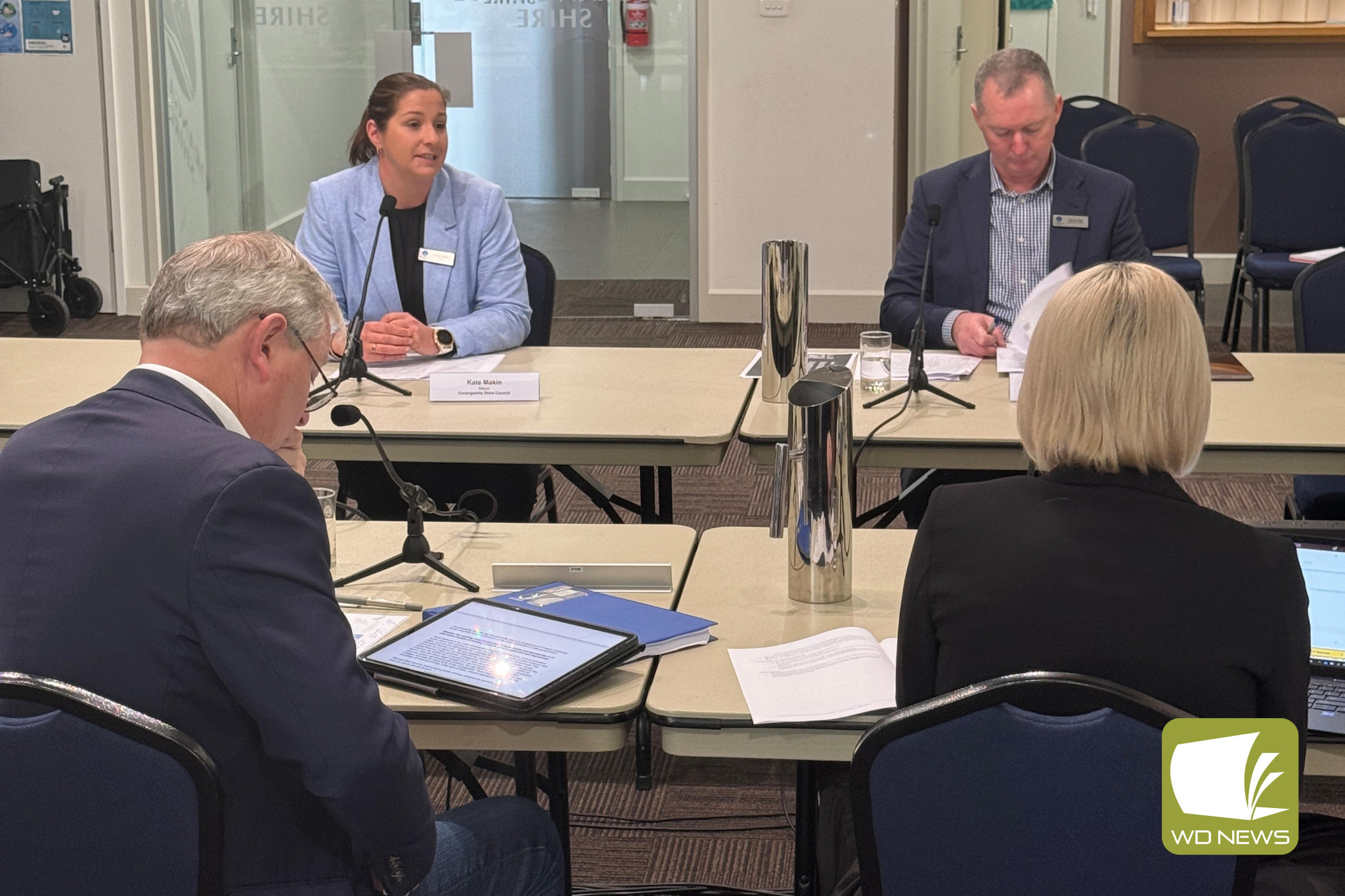General News
15 August, 2024
Hearing learns council concerns about costs
MEMBERS of parliament conducting an inquiry into local government funding and services travelled to Camperdown last week.

The Legislative Council Economy and Infrastructure Committee held a public hearing in Camperdown last Wednesday.
Seven Victorian councils were scheduled to give evidence throughout the day.
Representatives of Corangamite Shire, Moyne Shire and Warrnambool City had the opportunity to present and respond to questions from members of the committee.
The Upper House inquiry was assessing local governments’ ability to deliver core services and the effects of cost shifting from state and federal governments to local council.
The sustainability of current revenue structures and alternative funding models were also being considered.
The committee launched the public hearing phase of its inquiry in Melbourne in June.
It has been travelling to other regional and suburban areas as part of the probe, which has received 106 public submissions.
Corangamite Shire mayor Kate Makin said it was positive to have the hearing committee in Camperdown, so they “can get a better understanding of how this issue is effecting us in regional and rural areas”.
“The inquiry has highlighted several key differences between regional and rural councils compared to their metropolitan counterparts,” she said.
“These differences significantly impact the delivery and quality of services.
“One major issue is the escalating cost of compliance, which imposes a substantial financial burden on regional and rural councils.
“Unlike metropolitan areas, these councils often have limited resources and smaller revenue bases, making it challenging to meet increased compliance demands.”
Cr Makin said community infrastructure in regional areas was often inadequate.
She said this inadequacy affects the community’s access to essential services and facilities, “highlighting the urgent need for the state government to take a more active role in addressing these disparities”.
“It is crucial that local governments have a more significant say and a seat at the table when policies and changes in funding are being discussed,” Cr Makin said.
“Local councils are on the front lines of service delivery and have the best understanding of their community’s needs.
“Including them in decision-making processes would ensure that policies are more effectively tailored to address the unique challenges faced by regional and rural areas.
“Ultimately, it is the community that suffers when services cannot be delivered to the expected and required levels.
Without adequate funding and support, local governments struggle to provide the necessary services, affecting the overall quality of life for residents.”
In an alarming example of cost-shifting, Corangamite Shire Council said it was now being charged a $6000 fixed cost, and then $2 to record each immunisation administered.
Corangamite Shire chief executive officer David Rae outlined the new tax in the parliamentary hearing.
“That’s a new cost we’ve not had to pay previously. We’ve only been advised of that in the last, effectively, 10 business days,” he said.
Mr Rae said it would make it more difficult to provide other services for the community, given the new charge would cost the council about $10,000 annually.
“It just means that $10,000 doesn’t get spent on something else,” he said.
Shadow Minister for Local Government, Peter Walsh said he was stunned by the latest tax grab.
“It is a form of cost recovery that is totally unnecessary. Councils are delivering a service to protect community health, now they are being taxed by the Allan Labor Government for doing it,” he said.
“Labor can’t manage money and Victorians are paying the price.”
For more information, including the inquiry’s full terms of reference visit www.parliament.vic.gov.au/localgovernment funding.